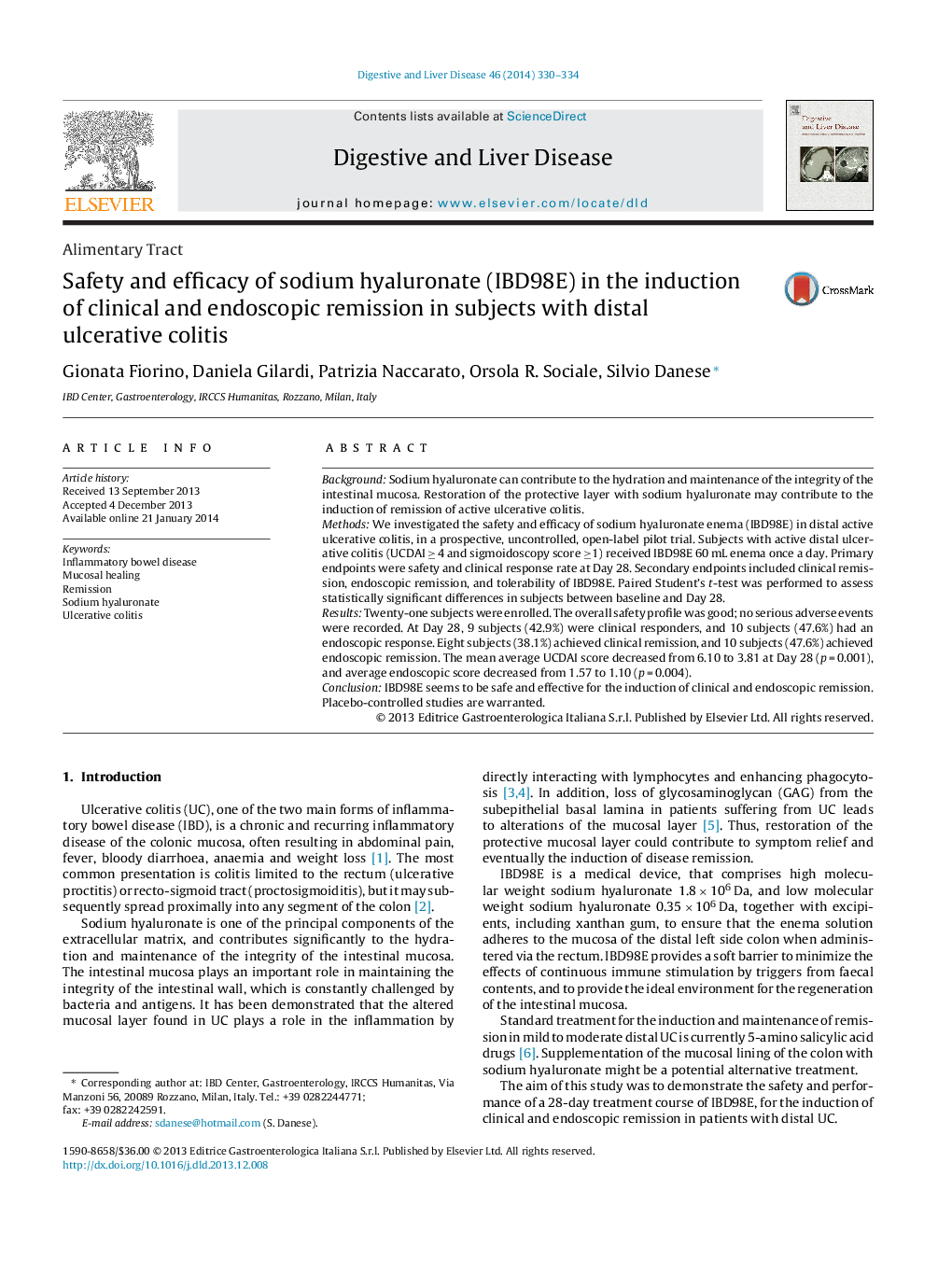| Article ID | Journal | Published Year | Pages | File Type |
|---|---|---|---|---|
| 6088467 | Digestive and Liver Disease | 2014 | 5 Pages |
BackgroundSodium hyaluronate can contribute to the hydration and maintenance of the integrity of the intestinal mucosa. Restoration of the protective layer with sodium hyaluronate may contribute to the induction of remission of active ulcerative colitis.MethodsWe investigated the safety and efficacy of sodium hyaluronate enema (IBD98E) in distal active ulcerative colitis, in a prospective, uncontrolled, open-label pilot trial. Subjects with active distal ulcerative colitis (UCDAI â¥Â 4 and sigmoidoscopy score â¥1) received IBD98E 60 mL enema once a day. Primary endpoints were safety and clinical response rate at Day 28. Secondary endpoints included clinical remission, endoscopic remission, and tolerability of IBD98E. Paired Student's t-test was performed to assess statistically significant differences in subjects between baseline and Day 28.ResultsTwenty-one subjects were enrolled. The overall safety profile was good; no serious adverse events were recorded. At Day 28, 9 subjects (42.9%) were clinical responders, and 10 subjects (47.6%) had an endoscopic response. Eight subjects (38.1%) achieved clinical remission, and 10 subjects (47.6%) achieved endoscopic remission. The mean average UCDAI score decreased from 6.10 to 3.81 at Day 28 (p = 0.001), and average endoscopic score decreased from 1.57 to 1.10 (p = 0.004).ConclusionIBD98E seems to be safe and effective for the induction of clinical and endoscopic remission. Placebo-controlled studies are warranted.
